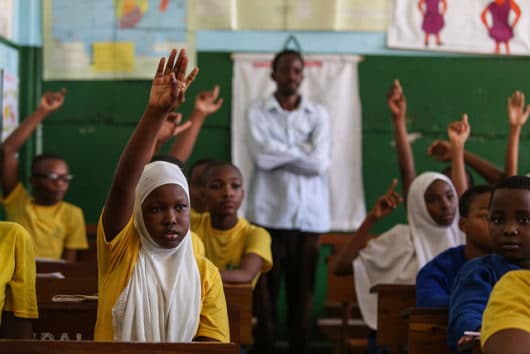The White Rose Organization & The Power of Education in Tanzania

Tanzania faces many challenges, including environmental pollution and poverty. The country has seen development in recent years, and poverty rates have declined by around one percent every year since 2007, according to a World Bank report. However, poverty remains high compared to neighboring countries, as 22.8 percent of Tanzania‘s population lives below the poverty line. Furthermore, 48 percent of children in Tanzania are deprived, even if they do not live in households that are monetarily poor.
Approximately 26 percent of youth in Tanzania have not completed primary education, as poverty is a barrier that keeps many children from going to school. The disparity between the richest and poorest children is stark — with the average primary school attendance rate being 68 percent for the poorest quantile of children and 90.5 percent attendance for the wealthiest quintile. Education in Tanzania still has room for improvement, and many regions and public schools lack qualified teachers and materials.
The White Rose: Hope for the Future of Education in Tanzania
The White Rose is a nongovernmental organization that believes fostering education in Tanzania is the key to tackling the nation’s problems and creating lasting social and economic change. The organization’s focus is on primary education, where children learn how to behave and form the mindset that will guide them throughout their lives. The organization works in several small villages in the Arusha region (Sanawari, Ilboru and Olturoto) located in the northern region of Tanzania.
The White Rose relies on volunteers to help fill in some gaps and bring a new and international perspective to local pupils. Nikolay Nedyalkov, a volunteer who completed a program with the White Rose organization, told The Borgen Project:
“There were a few differences between the children from the public school and the private school. Whenever I walked into my classroom at the private school, the students would already be seated and waiting for the teacher. What surprised me the most was how eager they were to learn… The students at the public school were a little more distracted, but their later class sessions were held after a regular class load … Besides these time-of-day attention span differences, both public and private school pupils were extremely curious and asked me questions in geography, sports, history and always wanted to play football.”
Nedyalkov’s experience illuminates another challenge in Tanzania’s education system. The government declared primary education free in 2001, and by 2016, 1.3 million students had enrolled. This high enrollment caused the student-to-classroom ratio to soar to 77:1. Private primary schools, on the other hand, are unattainable for a large portion of the population, with annual fees ranging from $1000 to $17,000. Therefore, while the White Rose provides the opportunity for its volunteers to teach in both public and private schools, the organization suggests that those volunteering for more than three weeks do so in a public school.
The White Rose volunteers teach a variety of subjects (ranging from English to geography) to primary school students. The organization currently operates in four private schools, two public schools, and a public library. Additionally, the Global Partnership for Education, UNICEF, and USAID have made strides to improve access to education for Tanzanian students. Tusome Pamoja, which translates to “let’s read together,” is USAID’s flagship program in coordination with Tanzania’s government. The program’s scope ranges from assisting with policy issues to coordinating teacher training and student materials; it seeks to benefit nearly 1.4 million children over the course of five years.
While the education system in Tanzania faces obstacles, the involvement of organizations like the White Rose and its team of volunteers are making a significant positive impact. With contributions of a multitude of aid organizations and the international community, the state of education in Tanzania is likely to improve.
– Aleksandra Sirakova
Photo: Flickr
